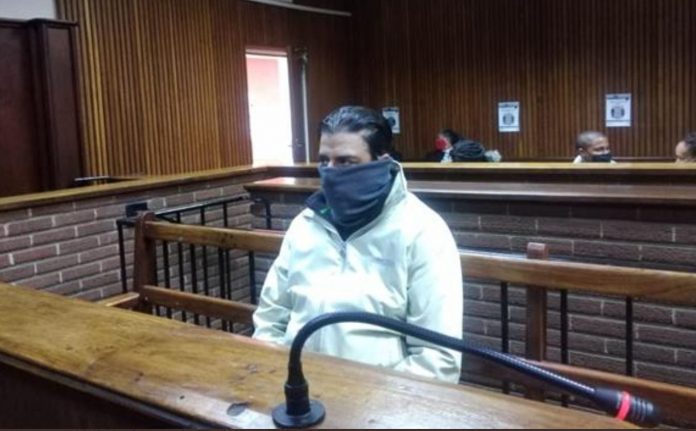The National Prosecuting Authority’s (NPA) investigating directorate (ID) has appealed the judgment in the R24.9-million Nulane Investment fraud and money-laundering case.
In April, judge Nompumelelo Gusha of the Bloemfontein High Court discharged all the defendants including Ronica Ragavan, an associate of the Gupta family, and Islandsite Investment, a company linked to the Guptas.
The judge’s ruling was based on the inadequate handling of the case by the prosecution and police, and the state’s failure to present evidence of the accused’s involvement in the crime.
The Nulane case revolved around allegations of a conspiracy to defraud the Free State government, with most of the money going to a Standard Chartered Bank account in the United Arab Emirates linked to the Gupta family.
The state has lodged an appeal, arguing that the judge erred in her ruling by not considering enough evidence and not applying legal principles correctly, and hopes the Supreme Court of Appeal will reach a different conclusion.
It also seeks a review of Gusha’s judgment in the matter.
According to the ID, the state is arguing that the judge made a mistake in letting the accused go without hearing its defence, even though there was enough evidence against the accused.
“The learned judge erred by discharging the seven accused in terms of section 174 of the act in circumstances where the state had presented prima-facie evidence upon which a reasonable court might convict,” said the ID on Tuesday.
“There are reasonable prospects that another court would come to a different conclusion and or find that granting the discharge was a misdirection which was contrary to legal precedent, constituted a gross irregularity in the trial and was prejudicial to the state.
“That the learned judge erred by deviating so drastically from the parameters of the test
for a discharge in terms of section 174 of the act that a miscarriage of justice occurred in that the accused persons against whom a prima-facie case had been made were acquitted without having been put to their defence.”
The state is arguing that the judge should not have decided on the sufficiency of the evidence to prove guilt beyond reasonable doubt during [that] stage of the trial.
The state argues that the inquiry under section 174 does not require a finding on whether the state’s evidence is plausible or constitutes proof of guilt beyond reasonable doubt, and therefore, it believes that Gusha deviated from the parameters of section 174 of the act, resulting in a miscarriage of justice.
“It is submitted to be trite law that the section 174 inquiry does not entail a finding being
made as to whether or not the evidence of the state at this stage is plausible or constituted
proof of guilt beyond reasonable doubt.” the ID said.
According to the ID, the state also argues that Gusha made mistakes in applying certain legal rules during the trial.
Specifically, the “best evidence rule” was not correctly applied, the judge made errors in assessing the credibility of a particular witness, and mistakes were made in interpreting the doctrine of common purpose.
“The learned judge erred in her interpretation and application of the law relating to the
cautionary rule, section 204 of the act, the assessment of the evidence of the section 204
witness and in the credibility findings made against the section 204 witness.
“The learned judge further erred in her interpretation and application of the doctrine of
common purpose [collusion and conspiracy].”
“The accused were acquitted because the judge did not think there was enough evidence to prove they were working together towards a common goal.
“However, the state is arguing that there is a chance another court could find that they were working together. Additionally, the judge made a mistake in not considering the testimony of a witness who could authenticate some disputed documents.
“In ruling that the state had failed to pass the barest evidentiary threshold, the learned
judge found that: ‘Lastly and perhaps more importantly, the state did not prove any common purpose between the accused’.
“As respectfully submitted below, there are reasonable prospects that another court would find that accused one, two, and three were acting in furtherance of a common purpose with the other accused and Cezula.
“The learned judge erred during the section 174 judgment in finding that Mr Mahlangu’s evidence did not serve as authentication on the disputed documents since he was neither the author thereof nor was he present when same were either authored or had signatures
appended thereto.”
The state hopes that the Supreme Court of Appeal will overturn the judge’s decision and find that the accused were involved in the crime.
Follow @SundayWorldZA on Twitter and @sundayworldza on Instagram, or like our Facebook Page, Sunday World, by clicking here for the latest breaking news in South Africa




